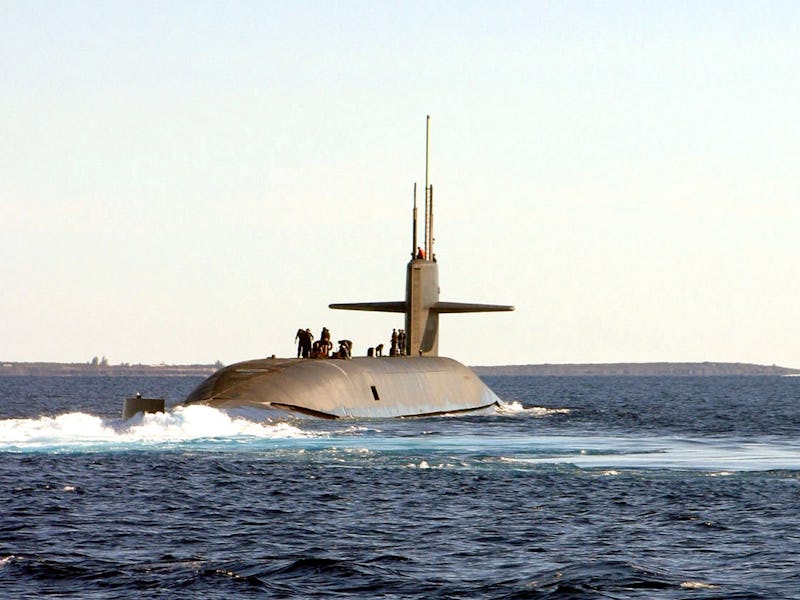Scientists Are Building Climate Change-Proof Naval Sonar
Echolocation devices get confused in warm water.

Climate change is hurting the effectiveness of sonar devices that naval ships use to map the sea around them, but scientists are working on a solution. Sonar involves listening to sounds in the ocean in order to estimate where they are coming from, and how far away they are. The problem is that sound travels faster through warmer water than colder water and unless you know precisely how fast the sound is traveling, it’s difficult to get an accurate measure of distance.
“[We] haven’t had to deal with this issue of climate change until the last 15 years, but the temperature changes are significant enough that it really is having an impact on how sound travels in the ocean,” said Glen Gawarkiewicz, an oceanographer at Woods Hole Oceanographic Institution in Massachusetts, in a news release. Gawarkiewicz and colleagues will present their research on water temperature and sonar this week at a meeting of the Acoustical Society of America in Salt Lake City.
Salinity and pressure also affect the speed of sound through water, but not as dramatically as temperature. Rising ocean temperatures by just a degree or two can have a significant effect on the speed of sound, particularly in colder water.
The speed of sound rises quickly with temperature in cold water.
Gawarkiewicz’s team is using a torpedo-shaped submarine drone to test the speed of sound underwater in different conditions, by emitting a noise and listening for the return of the echo. This data will be used to build sonar devices that more accurately predict distances by taking temperature into account. This could make it easier, for example, to locate the black box of a downed plane, which emits a noise to aid the search efforts.
The Navy uses sonar for many applications. The two major types of sonar are passive and active. Passive systems simply listen to the environment around them for signs of marine life, friendly communications, or enemy ships. Active systems send out a blast of sound and then listen for the echo, like a bat or a whale would do, which allows for a more detailed mapping of the surrounding area. Passive systems are preferred for obvious reasons when stealth is required.
Active naval sonar is highly controversial, as it has been linked to the deaths of many whales. Some whales, when exposed to sonar, quickly rise to the surface and become stranded in shallow waters where they die. These whales are often found with physical injuries, including bleeding in their ears and brain, and gas bubbles in their organs — presumably from surfacing too quickly. The Navy recently agreed to stay out of sensitive whale habitats off the coasts of California and Hawaii after its application to test sonar in these areas was challenged in court by environmental groups.